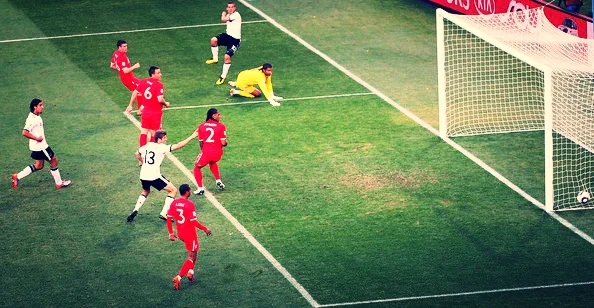FCN: A Football Education
Ten minutes to go, 2-1 down and it appears FC Nürnberg are heading for their seventh loss this season. Dynamo Dresden, the visitors, have been facing an onslaught since Lukas Mühl slid in to score in the 71st minutes. Up until that point there had been little to cheer. Two sloppy goals from Dynamo, one straight after the half-time break, had sapped the energy of “Der Club”. The only recent highlight had been attempts to decipher a banner the Dresden fans had unfurled. “I have no idea what that means” said my friend next to me. I shrugged, I was unlikely to be of any help. Turning to a fan next to me, I inquired if he had any idea. “I can’t tell” he said in Frankonian German. Suddenly, I didn’t mind knowing what the banner said, it was more of an achievement to understand Fränkisch. I must be getting used to this.
Of course, this wasn’t my first rodeo. I had been to enough FCN games by now, but mastering the very particular dialect of the Nürnbergerland region is something that takes time. Not so much for my FCN mad Scottish friend, who managed to raise a number of laughs from surrounding supporters by switching impeccably between a Scottish twang and Fränkisch brogue. When I first saw Nürnberg play, I had been slightly overwhelmed; from the standing section to the Ultras, it had been a lot to take in. However, now I’ve seen a few games, I think I am better placed to point out some idiosyncratic elements of German football.
Fußball Kutte
Fans have a myriad of different ways to show their support for the team they love. At this point, if you can put a team logo on it, you can probably buy it. Shirts, hats, garden gnomes and toilet seat covers can all be purchased, emblazoned with the club crest. Nothing says true fan like an official Stoke City tape measure or a Cardiff City chopping board. For the discerning German football fan, nothing declares your particular loyalty than a Fußball Kutte or Football cut. Styled after the uniform of motorcycle gangs the world over, the Kutte is adorned with patches that can be bought and sold in fan shops or online. Sure, you can get a club crest or something that reminds fans of various famous matches and heroes, but for the truly committed, patches that celebrate your team and have a series of odd poems revolving around naked women or going to the toilet, than that’s even better. As we left the stadium yesterday, I saw a fine gentleman, arm in arm with what I presume was his wife. His Kutte was covered in patches of half naked women, celebrating their collective love of FCN. The only patch concerning another team was one of a rival Fürth fan standing in a pile of deficant.
Sponsorship
In the modern era, football has increased its share of sponsorship. Stadiums are surrounded by advertising hoardings, teams sell off the naming rights of their grounds and if you are particularly lucky, you can have your team commercially aligned with anything from pot noodles, to tractors. In Germany, they have also decided that certain in game events can be a source of extra income too. Yellow cards and corner kicks are all a chance to sell fans something. Beer and cars seem to be the preferred choice of sponsor. I’m still alarmed to hear revving engines and a mini VW advert every time a rogue tackle goes flying in.
Flags
When Borussia Dortmund once again became the hipster team of choice, many football pundits waxed lyrical about the awesome nature of the “Yellow Wall” of fans, with choreographed displays before matches kicked off. Admittedly, not every team can reach the heights of the now famous spectacle at the Westfalenstadion, but every team has their flags. From giant war banners, to small child friendly accessories, stadiums throughout Germany have them in numbers. This adds to the energy, but not really the visibility of the game. Then again, complaining is not advised. The forearms required to keep one of those giant banners flying also prohibits people from asking you to stop. Sure, you can try, but I suspect you’ll be doing it on your own.
Hymn Time
It is often claimed that football is akin to a religion and I’m sure there are few who would disagree, despite Jesus having never been sponsored by Bitburger or Erdinger. Nothing reinforces this notion more than the team hymn, sung before the game begins. Many teams around the UK have their own particular song; You’ll Never Walk Alone, Blaydon Races, Blue Moon etc. Yet, few in England would call them hymns. In Germany, every team has one and they vary in levels of kitschy cheese. From rock to romance, all genres are covered. They might make you cringe, but nothing says ‘I Love Football’ like 50,000 fans singing schlager music dedicated to their team.
This is no time for laughter!
It might be a game of two halves and it may make you sick as a parrot, but I can assure you that German football is no laughing matter. There might be some gallows humour, but if it looks like you aren’t taking it seriously, then German fans have no problem telling you. This does tend to conflict with the British attitude of laugh at anything and everything regardless of how cruel or dark the source. Nothing exemplifies this cultural divide more than two friends who recently visited a German football match. Having enjoyed a few beers and cracked more than a couple of jokes, they were given a dressing down by an angry fan who felt their lack of seriousness was detrimental to the whole experience. As Bill Shankly once noted:
“Some people think football is a matter of life and death. I assure you, it's much more serious than that.”











